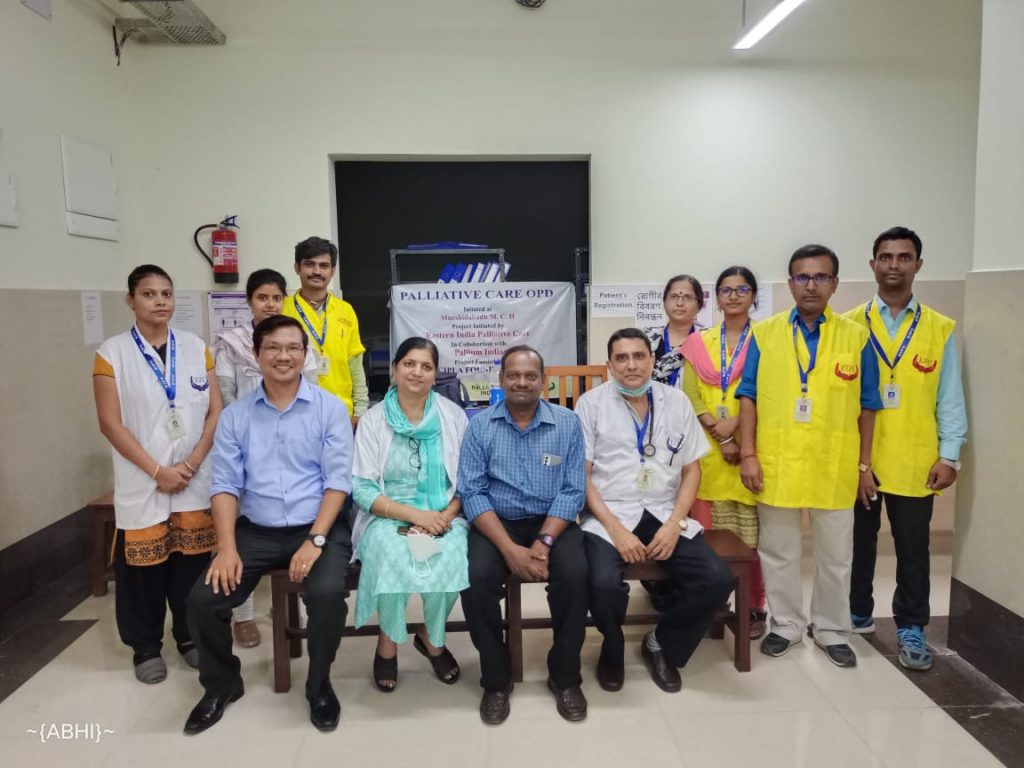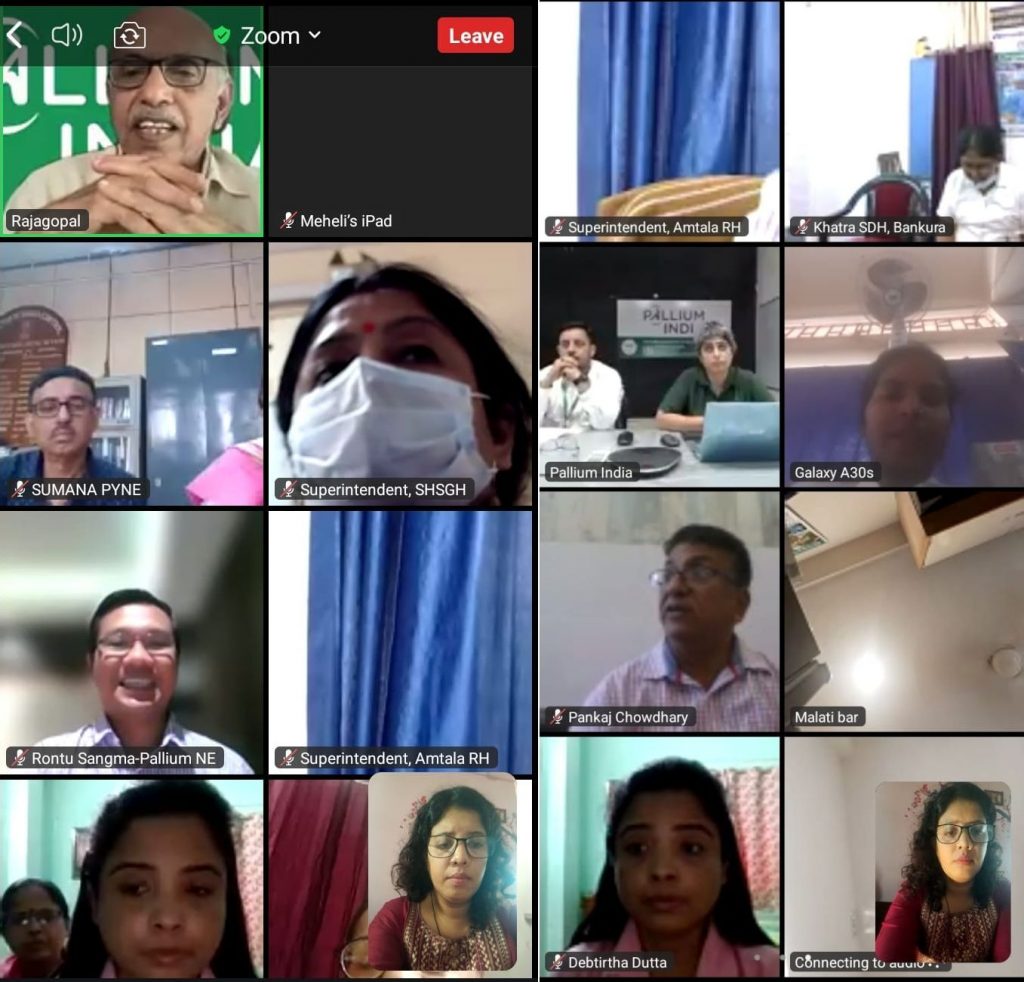West Bengal Visit & Opioid Availability Workshop
Rontu Sangma, Regional Facilitator NE, Pallium India, writes:
Millions of people in India live with Serious Health-Related Suffering (SHS), where palliative healthcare is extremely limited and pain relief reaches less than 4% of the needy. It is estimated that 21.3 million patients experience SHS in Lower Middle-Income Countries (LMIC) alone and 7.2 million of them are Indians. Moreover, 2.5 million children die with SHS every year and 98% of them belong to LMICs. Suffering is health-related when it is associated with illness or injury of any kind. Health-related suffering is serious when it cannot be relieved without medical intervention and when it compromises physical, social, spiritual, and/or emotional functioning.
For decades Pallium India and other Palliative Care Centres have been at the forefront of changing this. Pallium India, in collaboration with Eastern India Palliative Care (EIPC), Ruma Abedona Hospice and other stakeholders work in and around West Bengal to combat the narrative that patients with conditions like SHS cannot have quality care of life. We also train local healthcare workers in palliative care.
It has been a privilege to work with various stakeholders in West Bengal. Their partnership allows us to remain committed to a world where providing quality palliative care services is very much possible. Securing a partnership with the government of West Bengal has not been a cakewalk for us, but we did make it a point to understand the challenges they faced and the strategies that worked for them and eventually, we had the Opioid Availability Workshop on the 6th June 2023 and 100 participants took part in it including three Assistant Directors from the Drugs Control Department and National Programme Palliative Care (NPPC) Nodal Officer along with their district officials. Indeed, I believe this has been one of the significant successes working with the government.
My second visit to West Bengal in the same month and this time with Dr. Sunil Kumar MM is worth the experience with new learnings and an insight into the holistic aspects of palliative care with checklists and guides for the EIPC team to help them implement as quickly as possible and see results. Dr. Sunil Kumar MM is the Additional Director of Trivandrum Institute of Palliative Sciences (TIPS), an organ of Pallium India. Meeting Anurag, CEO of Cipla Foundation has been the highlight of the last day of my visit. Thank you all for providing me with a blissful rich experience.
I think for palliative care to thrive, not only experience but a high level of passion and collective vision towards palliative care demonstrated significantly stronger performance. Strategies alone without actual system fail and we learn best practices of developing others based on their developmental stage; this has been my personal experience on my recent visit to West Bengal. Looking forward, numerous challenges still need to be addressed but I see the best way forward as “Collaboration” which is a two-way street. We need to listen and learn from the stakeholder’s perspectives and priorities and provide value to the stakeholders in terms of their expertise, networks, and resources.








